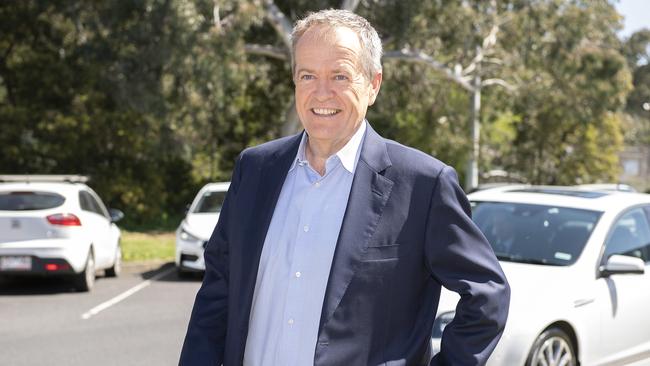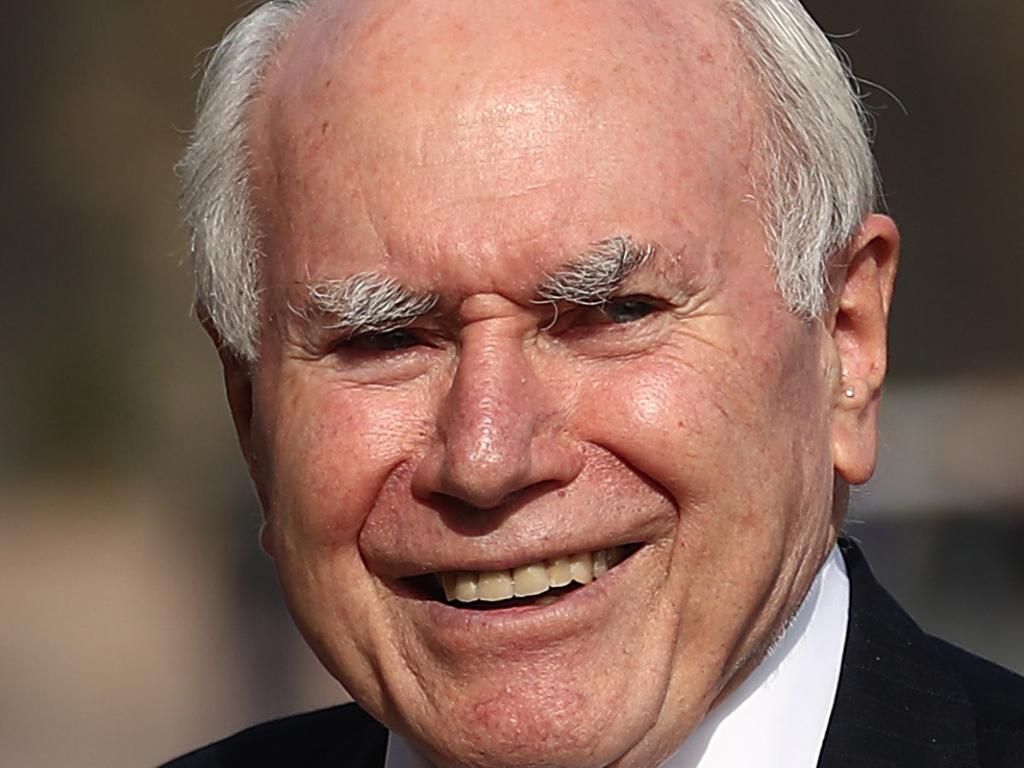Bill Shorten: I misread the mood in Queensland, Western Australia
Bill Shorten concedes voters saw Labor’s election policies as anti-worker and ‘green-left’.

Bill Shorten has conceded he “misread the mood” at the election in the battleground states of Queensland and Western Australia, saying voters there saw some Labor policies as being anti-worker and “green-left”.
The former Labor leader has offered his first frank assessment of his election defeat five months after polling day in News Corp papers and at a press conference, and said he accepted the “collective responsibility for us falling short”.
It comes just weeks before Labor’s post-election review is due to be handed to the federal executive, with expectations most of the document will be made public.
“It pains me to realise after the election that I’d misread some of the mood in Queensland and Western Australia. There they saw some of our policies as being green-left, not for the worker, not for working people,” Mr Shorten, the opposition’s NDIS spokesman, said in Melbourne.
“That pains me because I’ve spent my adult life standing up for working class people, standing up for workers, standing up for a better deal for them. I was at Beaconsfield (mine) but it pains me to realise at the last election our presentation meant that some people felt we weren’t putting jobs first and foremost in everything we did.
“I was captain of the team. We played in the grand final. Whilst millions of Australians did give us their first or second vote, it wasn’t quite enough.”
Labor lost two critical lower house seats in Queensland at the election with its representation dropping from eight seats to six. It only just managed to maintain its five lower house seats in WA, despite expectations from some MPs they would romp it in.
The ALP also suffered its worst Senate result in Queensland since World War II, picking up just one upper house seat.
Mr Shorten did not say how much of the election loss was due to his own unpopularity among voters but was more forthcoming with his review of the party’s policies, recognising Labor got its proposal to end excess franking credits to shareholders wrong.
He did not put Labor’s curbs on negative gearing or capital gains tax reforms in the same category.
“We misread the mood in terms of the franking credits,” Mr Shorten said. “What everyone thinks about the system in hindsight, and of course hindsight is never wrong is it, what we saw is that there were a lot of older people who felt vulnerable and it also laid the seed bed for the fake campaign on the death tax.
“I accept that our policies did create, didn’t speak to the mood of some Australians who we hoped would vote for us and we’ve got to review them, we’ve got to hear the verdict and we’ve got to work harder to win the trust of more Australians whilst acknowledging that many Australians voted for us and our policies.”
The 52-year-old “absolutely” ruled out another run at the leadership but declared: “What I also understand is you don’t have to be the leader to help be a leader.
“I want to be a leader for people with disabilities and their carers, I want to be a leader for the vulnerable and the marginal who are getting done over by robodebt … I do intend to be in public life for as long as I possibly can and make a contribution to the rebuilding of Labor but not as leader.”
Education Minister Dan Tehan claimed Mr Shorten’s intentions were clear and he was “coming after” Anthony Albanese’s job.
“He’s already got his eye on Anthony Albanese’s seat and I think what we’re going to see is a period of destablisation when it comes to the Labor Party,” Mr Tehan said.
“Bill Shorten I think is already saying ‘I would have done things differently’ and I think what he’s saying is if he’s leader again he will do things differently. I think for Anthony Albanese it’s been an incredibly short honeymoon as Labor leader.”
Opposition treasury spokesman Jim Chalmers lauded Mr Shorten for his “characteristically classy” interview and said he believed him that he no longer wanted to be leader.
“His views on the policies we took to the election obviously carry a lot of weight,” Dr Chalmers told Sky News. “When I read the interview Bill gave ... he made a series of points including that it’s possible we took too many issues to the election and that made it hard to build the case for them. We may have spread ourselves too thin.
“Bill, myself, Albo, everybody has a job to do. We can’t afford to drag our bums around and mope around about the last election. We need to look to the future. Everybody’s on that same page and I think Bill’s on that same page too.”




To join the conversation, please log in. Don't have an account? Register
Join the conversation, you are commenting as Logout